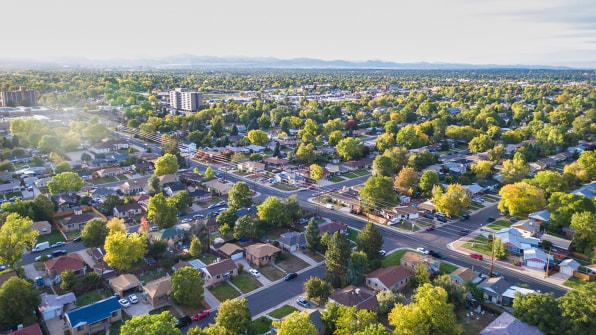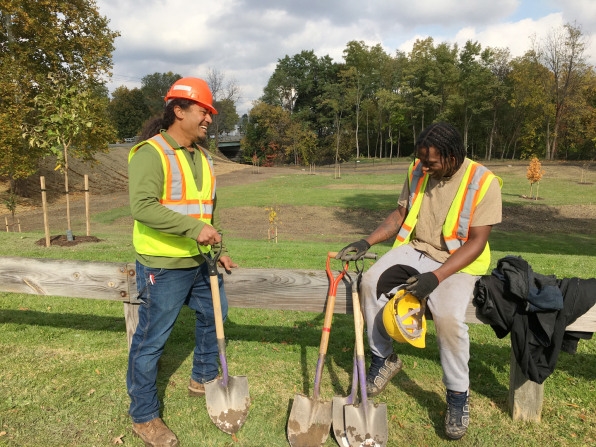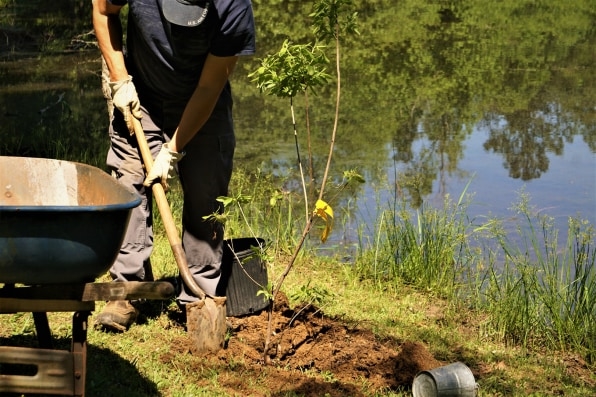Neighborhoods that were redlined in the past—meaning that racist, government-backed maps marked them as “high risk” for home loans because people of color lived in the area—often still struggle with poverty today. They also tend to be different from richer neighborhoods in another way: They have vastly fewer trees.
“If you look at a map of most American cities, you’ll find that tree canopy cover tracks along income lines,” says Sarah Anderson from the nonprofit American Forests. “Wealthier communities have more trees, and lower-income communities have fewer trees. And this is the result of decades of discriminatory housing and planning purposes.”

Among other programs, the nonprofit works on tree equity—bringing more trees to the areas that most need them in cities, with the benefits of helping clean the air, keeping neighborhoods cooler during heat waves, lowering air-conditioning bills, reducing flooding, and improving mental health. Now, the nonprofit is partnering with the company Tazo Tea to work on the problem, creating the “Tazo Tree Corps” to plant and care for trees in targeted neighborhoods in Detroit; Minneapolis; the Bronx; the Bay Area; and Richmond, Virginia.

“We’re working to employ folks from these communities—folks who are black, indigenous, and people of color—who bear the brunt of a lot of the challenges that come with climate change,” says Anderson, who serves as the director of career pathways at the organization. After a few weeks of training, the people who are hired will transition into full-time, permanent jobs, something that Anderson says is often uncommon in this type of program.
The jobs, for 25 people in the five cities, also come with support like subsidies for transit and childcare. In the long term, it can lead to careers. “About a quarter of tree trimmers are self-employed in three years,” she says. “So there’s a real wealth-building opportunity here as well, not just environmental justice and climate justice, but economic justice as well.”

It’s the type of program that Anderson says that she’s wanted to create for years. Now, the Biden administration is planning similar work, with a Civilian Climate Corps that will also create jobs for young people tackling work like tree planting to help in the climate fight. The moment is right, Anderson says, as more people are recognizing the inextricable connection between work on climate change and justice for the communities that have been hardest hit by pollution and climate impacts. “I think we’re getting there now in society, where we’re making the link between economic justice and environmental justice and social justice,” she says. “But I think folks need to know that there are ways that we can hit all three of those together.”
(15)